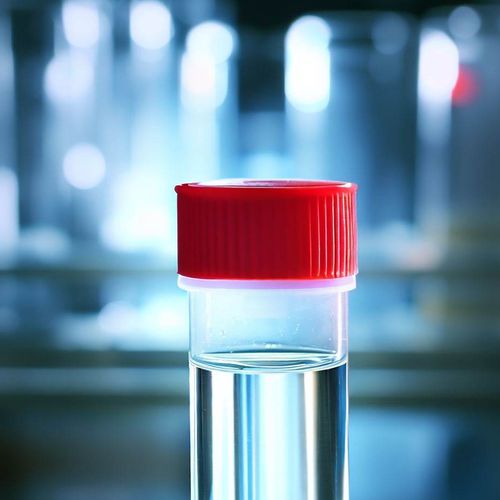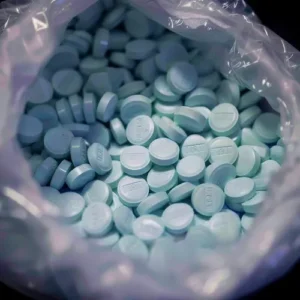Why Use Saliva Drug Tests?
Saliva drug testing is becoming more and more popular, especially in workplace drug testing. There are a number of reasons for this:
- Advantages:
- Saliva testing looks for the parent drug itself – the active ingredient
- No gender or privacy issues
- Quick
- Looks for impairment
- Tests can be carried out anywhere/anytime
- Cost effective to use
Why Use Saliva Drug Testing Instead or Urine Testing?
The main difference between a saliva drug test and a urine drug test is how they detect drug usage. A saliva drug test looks in a person’s oral fluid for the parent drug itself. Urine drug testing is seeking out the metabolite of the drug.
In easy to understand terms, this means that a saliva test is trying to identify the ‘active ingredient’ of the drug. A urine drug test is trying to locate what is left of the drug after it has been processed in a person’s body.
By looking for the active parent drug, there is a high chance that a positive test indicates that the person is still under the influence of the drug of abuse which they will have used in the previous few hours.
A urine drug test is more often used to determine the history of somebody taking a drug. In most cases, testing on urine means that you are less likely to catch somebody currently under the influence of a drug. A urine drug test will not help you to identify when a person took a drug, only that they took the drug in the last few days or weeks. All of this depends, of course, on how much of a drug was taken, what kind of drug it was and the physical build of the person who took it.
Is Saliva Drug Testing Cost Effective?
Yes! – the economic cost of drug testing must be considered against the potential cost of not doing it. Saliva drug tests are cheaper now than they have ever been before and, although still more expensive to purchase than urine tests, do offer many advantages. Three good reasons to consider saliva drug testing:
Anyone can do it!
No special training is required to carry out a saliva test. Also there are no gender issues, which can be the case when collecting urine samples.
It can be done anywhere!
There’s no need for special washrooms or segregated toilet facilities, saliva drug testing can be carried out anywhere, inside or out.
Save Time
Shy bladder syndrome is the biggest time waster when it comes to urine drug testing. not being able to urinate whilst being observed is a not uncommon problem. No such problems of this type exist with saliva drug testing, where all that is needed is a two minute swab of the recipients mouth for oral fluid.
Saliva Tests are much cheaper now!
In recent years, the cost of saliva testing has plummeted. This makes it a great option for any employer.
Saliva Drug Tests can screen for all drugs of abuse
There is a saliva drug test available for every requirement. A simple 3 panel saliva drug test will screen for just cannabis, cocaine and heroin. Whilst a 13 panel saliva drug test will screen for most drugs taken in the UK today.
Can You Cheat Saliva Drug Tests?
No. At present, it is highly unlikely that you can cheat a saliva drug test. Certainly, we are not aware of any types of adulterant that are commercially available to influence the results of a saliva test.
Drug Detection Times for Drugs in Saliva
The table below shows the general detection times for all drugs when using a saliva drug test kit.
| Name of Drug | Code | Detection Period | Cut off: |
| Alcohol | ALC | Real time | 0.02%BAC |
| Amphetamines | AMP | 2-3 Days | 50ng/mL |
| Benzodiazepines | BZO | 2-3 Days | 50ng/mL |
| Buprenorphine | BUP | 2-3 Days | 10ng/mL |
| Cannabis | THC | 8-12 Hours | 12ng/mL |
| Cocaine | COC | 1-2 Days | 20ng/mL |
| Cotinine | COT | 1-2 Days | 20g/mL |
| Ecstasy | MDMA | 2-3 Days | 50ng/mL |
| Methadone | MEP | 8-12 Hours | 30ng/mL |
| Methamphetamine | mAMP | 2-3 Days | 50ng/mL |
| Opiates | OPI | 7-21 Hours | 40ng/mL |
| Oxycodone | OXY | 2-3 Days | 50ng/mL |
| Phencyclidine | PCP | 12-24 Hours | 10ng/mL |
| Spice (Synthetic Cannabis) | K2/Spice | Up to 48 Hours | 25ng/mL |
Considerations for Workplace Drug Testing
When considering implementing a drug testing program in your workplace, there are several factors to take into account:
- Know your legal obligations – Make sure you understand the laws around drug testing employees in your country/state. In the UK, drug testing is allowed but needs to be handled appropriately.
- Have a clear policy – Be transparent with employees about your drug testing policy, when tests will be conducted, and consequences for failing.
- Choose the right test – Consider whether a saliva test to detect recent use or a urine test to detect longer history of use is more appropriate for your needs.
- Use a certified lab – Send samples to a reputable lab certified to conduct forensic drug testing for legal defensibility.
- Protect confidentiality – Handle all test results confidentially and give employees an opportunity to explain any positive results.
- Offer support – Have resources available like counselling for any employees struggling with drug dependence. The goal should be rehabilitation not solely punishment.
- Review regularly – Analyse your drug testing data over time and adjust policies as needed. Drug testing alone won’t solve workplace substance issues.
Below are some further considerations around implementing saliva drug testing in the workplace:
When to Test Employees
Saliva drug testing is best suited for pre-employment screening or random, for-cause, and post-incident testing of current employees. It detects very recent use, so is not optimal for monitoring long-term abstinence. Some good times to conduct saliva tests:
- During the hiring process before making a job offer
- After accidents, injuries, or near misses to check for drug impairment as a contributing factor
- When reasonable suspicion of on-the-job drug use (based on supervisor observation)
- As part of random drug screening programs
Try to avoid targeted, discriminatory testing of specific employees without concrete justification.
Observed Sample Collection
To prevent cheating, saliva swab tests should be conducted under direct supervision. The employee should be observed by a collector of the same gender if possible. Some tips:
- The collector watches the employee swab their mouth to ensure no tampering.
- The collector times the swabbing to get an adequate saliva sample.
- The collector checks the temperature strip on the test to validate a fresh sample.
- The collector maintains chain of custody until the sample is sealed and sent to the lab.
Document each step to demonstrate proper collection procedures were followed.
Reviewing Results
When looking at results, have a process to confidentially review and verify them.
- Negative means no action needed. But consider re-testing employees periodically.
- Positive warrants further investigation. Review the employee’s duties and safety risks.
- Invalid or rejected samples should be immediately recollected under observation.
Meet privately with any employees with positive results to discuss explanations before imposing discipline. There are rare instances of false positives.
Retesting should be allowed if an employee disputes the results. The employee can also request that their split sample be independently tested.
Consequences of Failed Tests
Determine appropriate consequences for employees that fail drug tests. Some options:
- Immediate termination for safety-sensitive positions like machine operators, drivers, etc.
- Temporary suspension + mandatory counselling for non-safety-sensitive roles.
- Written warning and retesting for first offence. Termination only for repeated failures.
IMPORTANT: Consequences should align with the overall corporate drug policy and local employment laws. The goal is to correct problems and maintain employee privacy.
Encouraging Drug-Free Workplaces
Beyond just testing, promote workplace drug prevention through:
- Employee assistance programs providing counselling and addiction resources.
- Drug awareness training to educate staff on organizational policies.
- Supervisor training on signs of impairment and how to properly request testing.
- An ethics policy that prohibits on-the-job alcohol or drug use.
Foster a culture of health, safety and personal responsibility. Work with employees to create collaborative solutions.
Overall, saliva drug testing offers many advantages over urine testing like ease of collection and ability to detect recent use. But workplace drug testing programs require careful implementation to balance the needs of employers and employees.
Photo by Zoom Testing
Zoom Testing is a leading UK drug testing company and a supplier of Drug Test Kits.





